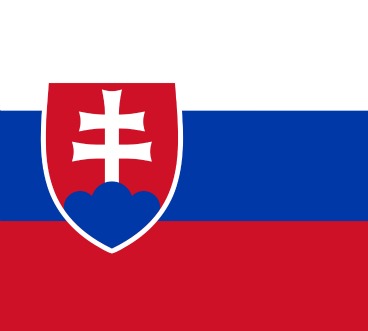Mr. Speaker, I am alarmed by recent violence in Slovakia that may be part of a larger pattern of politically motivated violence.
During the weekend of May 4-5, a device that may have been a hand-grenade exploded in front of the home of Bela Bugar. Mr. Bugar is not only a member of the Hungarian minority’s opposition coalition, he is also, according to opinion polls, its most popular member. Shortly before that incident, Robert Remias, a former policeman who has been questioned in connection with the kidnaping of President Michal Kovac’s son last year, died when his propane-fueled BMW exploded. Although it is not yet certain who is responsible for these acts, it is clear that violence coincides with politics in Slovakia at a suspiciously high rate. I also recall, for example, that Frantisek Miklosko, the opposition leader of the Christian Democratic Movement, was assaulted by unknown attackers near his home last August; Peter Toth, a journalist investigating the Kovac case, has also been assaulted; last April, a bomb went off in the car of Arpad Matejka, a member of the Prime Minister’s party.
The Helsinki Commission, which I chair, is no stranger to Slovakia. We were a close observer of developments there well before the breakup of the Czechoslovak Federation in 1992 and have issued two major reports on that country. Since last summer, I have been joined twice by Senator Alfonse D’Amato, the Commissions’ cochairman, and the Commission’s ranking minority members, Representative Steny H. Hoyer and Senator Frank Lautenberg, in sending letters to Slovak Ambassador Lichardus regarding continuing challenges to the democratization process in his country. Although the Commission has raised a number of serious concerns in these letters, we have, remained generally optimistic about developments in Slovakia.
Last week, for example, I hosted a conference in New Jersey on business opportunities in Central Europe, where I discussed some of the positive economic changes in Slovakia that are creating new opportunities for Slovak society as a whole. I appreciate the willingness of the Slovak Parliament to consider the views of a number of international interlocutors regarding draft legislation and note the active and constructive role of the President and the Constitutional Court in guiding the passage of legislation consistent with democratic values and human rights norms.
I commend Prime Minister Meciar for his decision last week to seek, in his words, a wider democratic discussion of the draft law on the protection of the Republic. Most of all, I have been greatly heartened by the increasing involvement of Slovak citizens in all areas of public life. The message sent by the most recent developments in Slovakia, therefore, is all the more discouraging. And that message is dangerous: take on a high political profile, and you are possibly a more visible–and more likely–target of violence. I welcome the May 9 statement of the Government of Slovakia condemning acts of violence and promising a thorough investigation of these matters. I believe it is particularly important that the death of Robert Remias be examined in an open and transparent manner, in a manner that makes information available to all those concerned with this case, and in a manner that will foster credibility in its results. Mr. Speaker, the Helsinki Commission will continue to follow closely developments in this case, and I expect to report further to this body as information becomes available.




